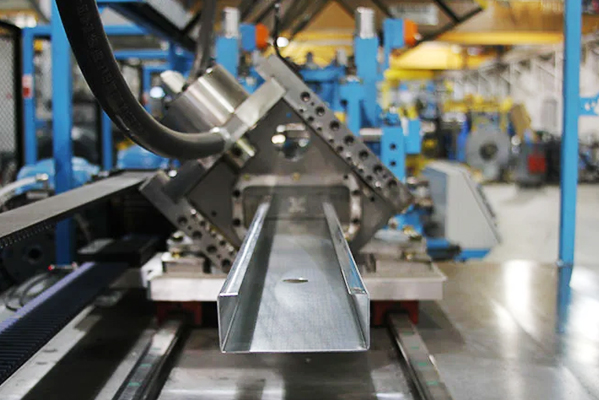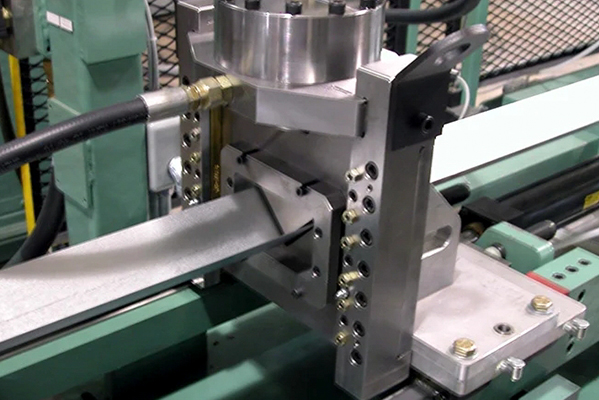Navigation Menu
Contact Us
- Email:
- info@wxavatar.com
- Address:
- Yurong Village, Yuqi Street, Huishan District, Wuxi, China.
Release Date:Nov 03, 2024 Visit:128 Source:Roll Forming Machine Factory
In the ever-evolving landscape of industrial production, the role of roll forming machines has become increasingly significant. These machines have transformed manufacturing processes, enhancing efficiency, precision, and productivity. As technology advances, the trend towards process automation in roll forming machines is gaining momentum, promising to revolutionize industrial production further.

Roll forming is a sheet metal forming process where a strip of metal is passed through a series of rolls that progressively bend it into a desired shape. This method is widely used for producing various profiles, such as those for city shelves, storage shelves, and other cold-rolled structures. The process is known for its ability to produce continuous lengths of material with uniform cross-sections.
The integration of automation in roll forming machines has several advantages. Firstly, it allows for highly accurate and consistent production. By inputting parameters such as hole spacing, product length, and quantity, machines can punch, mold, and cut materials simultaneously, ensuring stable product quality and precise sizing. This level of precision is crucial in industries where even minor deviations can lead to significant inefficiencies or product failures.
Moreover, automation in roll forming machines supports continuous production without shutdowns. This not only maximizes uptime but also enhances overall productivity. With the ability to run unmanned for extended periods, manufacturers can significantly reduce labor costs while maintaining high levels of output.
Another significant trend is the adoption of industrial control systems, such as Programmable Logic Controllers (PLCs). PLCs enable operators to monitor and control the roll forming process in real-time. This full intelligent control system enhances safety and efficiency by allowing for immediate adjustments to production parameters. PLCs also facilitate easier troubleshooting and maintenance, reducing downtime and operational costs.
The composition of modern roll forming machines reflects these automation trends. A typical machine includes components like decoilers, power leveling machines, servo feeding mechanisms, punch punching mechanisms, roller forming machines, electronic control systems, and mechanical tracking shear mechanisms. These components work in harmony to automate the entire production process, from feeding and leveling the material to punching, forming, and cutting it to the desired specifications.
Customization is also a growing trend in roll forming machine automation. Manufacturers are increasingly offering tailored solutions to meet specific customer requirements. This includes designing customized production lines that can produce a variety of shelf column profiles with different thicknesses and dimensions. The flexibility to adapt to diverse production needs makes roll forming machines an indispensable asset in today’s competitive market.
The future of roll forming machine process automation looks promising. With advancements in technology, such as CAD/CAM integration and increased standardization of equipment, manufacturers can expect even higher levels of efficiency and precision. The trend towards greater automation will continue to drive innovation, enabling manufacturers to stay ahead in the fiercely competitive industrial landscape.

In conclusion, the integration of automation in roll forming machines is transforming industrial production. By enhancing precision, productivity, and customization capabilities, these machines are setting new benchmarks in manufacturing excellence. As technology continues to evolve, the role of automation in roll forming processes will undoubtedly become more prominent, shaping the future of industrial production.